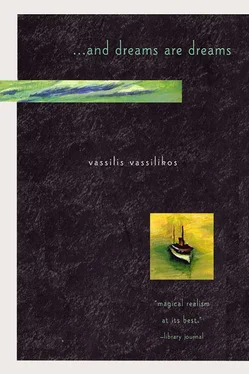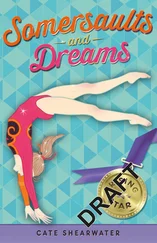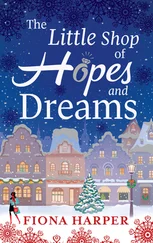Vassilis Vassilikos - ...And Dreams Are Dreams
Здесь есть возможность читать онлайн «Vassilis Vassilikos - ...And Dreams Are Dreams» весь текст электронной книги совершенно бесплатно (целиком полную версию без сокращений). В некоторых случаях можно слушать аудио, скачать через торрент в формате fb2 и присутствует краткое содержание. Год выпуска: 1995, Издательство: Seven Stories Press, Жанр: Современная проза, на английском языке. Описание произведения, (предисловие) а так же отзывы посетителей доступны на портале библиотеки ЛибКат.
- Название:...And Dreams Are Dreams
- Автор:
- Издательство:Seven Stories Press
- Жанр:
- Год:1995
- ISBN:нет данных
- Рейтинг книги:3 / 5. Голосов: 1
-
Избранное:Добавить в избранное
- Отзывы:
-
Ваша оценка:
- 60
- 1
- 2
- 3
- 4
- 5
...And Dreams Are Dreams: краткое содержание, описание и аннотация
Предлагаем к чтению аннотацию, описание, краткое содержание или предисловие (зависит от того, что написал сам автор книги «...And Dreams Are Dreams»). Если вы не нашли необходимую информацию о книге — напишите в комментариях, мы постараемся отыскать её.
...And Dreams Are Dreams — читать онлайн бесплатно полную книгу (весь текст) целиком
Ниже представлен текст книги, разбитый по страницам. Система сохранения места последней прочитанной страницы, позволяет с удобством читать онлайн бесплатно книгу «...And Dreams Are Dreams», без необходимости каждый раз заново искать на чём Вы остановились. Поставьте закладку, и сможете в любой момент перейти на страницу, на которой закончили чтение.
Интервал:
Закладка:
And yet, thanks to her, I had changed. Thanks to her I had become who she wanted me to be. Now that I no longer had her. Would she even be interested in hearing the good news? Besides, how long would this transformation last? Wasn’t there the danger, if we got back together, that I might become as I had been when she knew me, wanting to dominate her completely, to be indispensable to her, wanting…. I had practically abolished nourishment from my life. I was living on coffee and water and a ginseng drink that gave me an instant cerebral high when I was working. Nothing else. Absolutely nothing else. I wanted my Rosa back.
A Rosa of my memories. A Rosa of my own to love, and not to care about anything else. To be devoted to her the way Saint Francis was to his faith. Penniless and dressed in rags, I would be fortified by the presence of her love. I wanted to get back a Rosa who perhaps was not real, but who was the way I wanted her to be. A Rosa of my imagination.
No. Everything I knew about her told me that the Rosa of my imagination was the real one and that the other Rosa, the one I saw when I was with her, was a figment of my imagination, with whom I satisfied my sexual fantasies. And she accepted my delusion, because she loved me. Until one day, she stopped loving me, because I refused to see her for who she really was. So she left. It was only then, like another Saul on the road to Damascus, that I saw the vision, I saw the light, and I was converted.
Oh, how similar are the paths of people to trains that meet and then speed apart, without time to join together because they are placed on separate tracks!
Could a train be at the same time locomotive and passenger wagon, and identical to the other train on the other track? Is that impossible?
Oh Rosa, Rosa, I kept saying to myself, like another Werther. Sweet Rosa, Rosa my love, your wrists still scarred by that attempt in the past, before you met me, oh Rosa, you who are worthy of my happiness, who made me worthy to live more broadly, more intensely, I, Rosa, who have become you, prayer book, come tonight, my dearest.
I was delirious. I had lost control. I wanted her. I was convinced of that. I had matured. Rosa, with her sad gaze of joy, her beautiful face of sadness, Rosa with the body that magnetized, with the voice that tranquilized, Rosa by the fireplace, on the beach, with the seagulls, Rosa of midday, of nighttime, of dawn, Rosa of the disco, of long ago and far away, Rosa who was earth, sky, a comet passing by earth every seventy-six years and I, with my telescope, waiting for her to pass by with her peacock’s tail, waiting to respond to her deepest, most secret nature, Rosa, Rosa, don’t get hurt by the sun, leave me at least the black powder of your tail, my love, Rosa, Rosa, Rosa, Rosa, I write means I want you, I love you, I am here, I want you, yes, love, Rosa is here, she is waiting for me, here she is, yes, here she is….
— 4-
And the man went crazy. On his desk, in his small hotel room, the chambermaid found a strange piece of paper upon which he had written, like a broken record, the same phrase, over and over: “A Rosa is a Rosa is a Rosa is a Rosa is a Rosa is a Rosa…” as if the play on Gertrude Stein’s famous words were the key to an explanation.
After his unfortunate death (they found his body floating in the Tiber, like the corpses of the resistance fighters he used to see as a boy, washed up by the River Strymon, as he describes in his books), they brought me, the press attaché at the embassy in Rome, his papers and few belongings: his radio, his typewriter, and a couple of changes of underwear. I sent the lot to Rosa, whose telephone number was written across the title page of The Transplanted Heart . When, later on, while on leave in Athens, I got to meet her, she spoke to me the way you would speak to a stranger you trust because at a critical moment he had done the right thing: she had greatly appreciated the fact that I had sent the manuscript not to the publisher, but to her. After having told me all kinds of things about the novel, where she had discovered countless details of their love: phrases, words, favorite meals, she began to accuse herself indirectly of having behaved harshly.
She had not realized that Don Pacifico or, as he was known, Irineos, was nothing but an immature child. He had appeared to her so heavy with experience and knowledge that she had ignored his childish fragility. She had sensed it in the beginning, but finally she had told herself that she had been mistaken and so she chose to believe (she had been wrong of course, but it was all useless now, all useless) that she was dealing with a man who undoubtedly had many personal problems, problems that he was solving, or was trying to solve, through the sex act. And so Rosa, who had never had feelings of remorse or guilt, acquired them now.
“Why did I go and pull that stunt?” she asked, sobbing, as she told me of the time when their love had filled her completely. “Why did I have to hurt him too?” But it was too late for regrets. After all, she could have died after they had broken up; she had been beside herself, looking for something to hang onto so as not to repeat what she had done when she was younger, the scars of which were still on her wrists.
She could have, yes, that miserable summer when they had separated, when she herself had made the painful decision that they break up, because they just couldn’t go on anymore, asking of him only not to contact her.
She could have died then, and loaded him with the burden of sorrow and guilt. At least he had died happy, delirious, as his papers showed, because he had finally succeeded in falling in love, at the end of his life. He was seventy years old, you know. Old, but still capable of affecting a woman.
Afterward, Rosa wanted to enter a convent. She went through different phases, from Hinduism to Zen to the occult. She kept in touch with me. With time she got over it. Only those three flowers she had taken to his room still tormented her in her sleep. The three red roses, as scarlet as blood, that she herself had placed in the vase the chambermaid had brought her, after Rosa had given her a little something, in the hallway of the hotel, outside the door he had left unlocked, as always, because, he used to say: “Who would steal my manuscripts? Nobody reads Greek.” Those roses were like three characters in search of an author to sing their praises. And the author might no longer be alive, but those flowers lived on in her memory.
— 5-
That was the story I wanted to tell you, dear friends, and please forgive me any imperfections.
Nowadays, people telephone each other, telegraph each other, teleprompt each other, telelove each other.
Tele means from afar in ancient Greek. By virtue of this text I have come close to you. Having reached this point I would end, if only life weren’t much more fictional than the best of novels. Nothing surprises us more than the continuation of life, this implacable continuation that makes our escapes into the world of fiction seem laughable. The death of the main character suits fiction writers well, because it introduces the idea of the irrevocable. Whether they start off with the death and go back over his life in the form of flashbacks, or whether they end with the death, the fact remains: the unexpected is impossible.
Likewise, the death of the author suits those who study him: it is impossible for scholars’ monographs to be overturned. That is why studies, monographs, and serious analyses of a creator’s work are always carried out after his death. That is when all the art historians and other researchers gather like seagulls over a sunken trawler. Otherwise, while the artist is alive, the gulls follow hesitantly, eating whatever he deigns to toss at them as he empties his nets, apprehensive of his slightest move, always ready to fall back, those gluttonous old gulls. But once the artist is dead and the trawler has sunk, along with its nets and trawls, the greyish gull researchers are no longer afraid of anything and plop whatever has been washed up from the wreck with their powerful bills. The same thing happens in novels: the death of the main character, whether at the beginning or the end of the book, gives the reader a feeling of certainty. He reads the story with the same ease with which the writer narrates it.
Читать дальшеИнтервал:
Закладка:
Похожие книги на «...And Dreams Are Dreams»
Представляем Вашему вниманию похожие книги на «...And Dreams Are Dreams» списком для выбора. Мы отобрали схожую по названию и смыслу литературу в надежде предоставить читателям больше вариантов отыскать новые, интересные, ещё непрочитанные произведения.
Обсуждение, отзывы о книге «...And Dreams Are Dreams» и просто собственные мнения читателей. Оставьте ваши комментарии, напишите, что Вы думаете о произведении, его смысле или главных героях. Укажите что конкретно понравилось, а что нет, и почему Вы так считаете.












